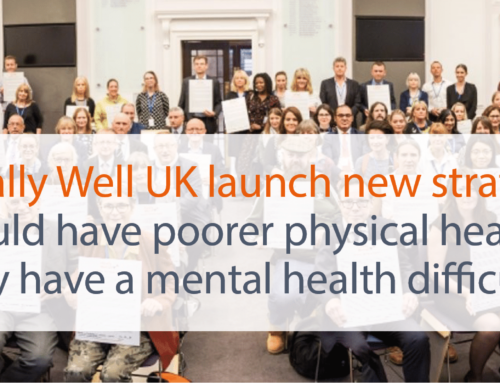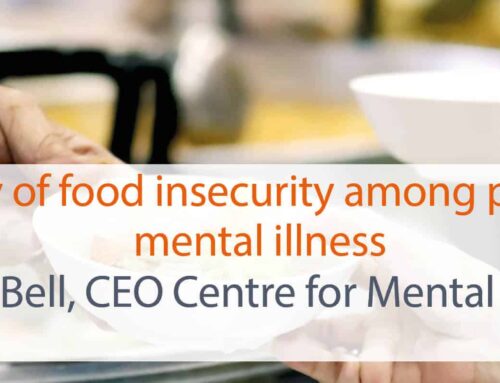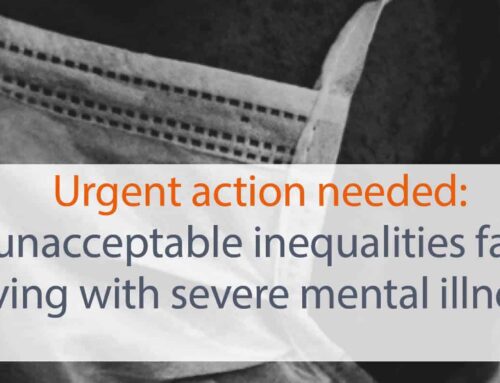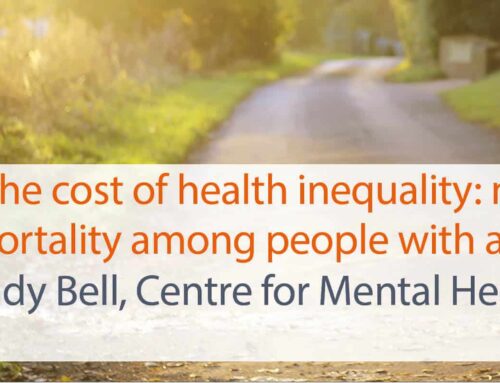Following the Government’s obesity strategy, Tackling obesity , Equally Well UK wrote to Nadine Dorries MP, Parliamentary Under-Secretary of State for Mental Health and Jo Churchill MP, Parliamentary Under-Secretary of State for Prevention, Public Health and Primary Care on the 10 August 2020 to express concerns about the plan. We also published a blog response.
People living with a mental illness have a 15-20 year shorter life expectancy than average in the UK. Many have difficulties managing a healthy weight. We have explored what causes this and what can be done to help by listening to people’s experiences. While everyone’s life is different, it is clear that for many people who are struggling with their mental health, food is a source of comfort and a way of coping with trauma. For some, weight gain is also a direct consequence of the medication they are prescribed for their mental health condition.
We understand the importance of managing a healthy weight and are equally concerned by the evidence which suggests a strong link between weight and more severe experiences of COVID-19. However, we believe that aspects of the government strategy may cause harm to many people with mental health difficulties. Displaying calorie counts on menus presents a very real danger to anyone living or recovering from an eating disorder. A meal with less calories isn’t necessarily a more nutritious one. We urge you to seriously reconsider this policy.
Even for those without a diagnosable mental illness, mental health is often a major contributor to unhealthy weight. It is disappointing that this is not acknowledged in the strategy. Mental ill health is interlocked with poverty, insecurity, racial injustice, violence and abuse. Without recognising these factors the strategy risks missing an important opportunity to address the issues it seeks to tackle.
This is especially important in mainstream weight loss services where we know that people with severe mental illness who are overweight often fear that they will experience, or have experienced, prejudice. It is vital that the content and delivery of these services recognises the role of poor mental health as a causal or contributory factor in weight gain, and that any prescription or programme for weight loss recognises this also.
Our weight and our mental health are closely linked and shame and stigma are a barrier to addressing both. Equally Well UK has heard from many people with severe mental illness that they find the words ‘overweight’ and ‘obese’ stigmatising. The term ‘healthy weight management’ was co-produced with people with severe mental illness and we believe that this would be a better starting point in supporting many people to talk about struggles with their weight.
This is a deeply-rooted issue that requires careful and steady stewardship. It is vital that the Government reflects how and why many of us struggle with our weight in its consultation on certain elements of the strategy, and considers what would really help the nation to enjoy better health. If we do not, we risk repeating the mistakes of the past and widening inequalities, placing the most vulnerable people at greater risk.
We would be very pleased to meet with you to discuss how the Equally Well collaborative can share its learnings and evidence to inform the next steps of your plan. We look forward to speaking with you about this and working with the Department to support positive change.
Yours sincerely
Professor Wendy Burn, Clinical Chair, Equally Well UK
Sarah Hughes, Chief Executive, Centre for Mental Health
Kevin James, Expert by Experience Group Chair, Equally Well UK
Mark Winstanley, Chief Executive, Rethink Mental Illness





